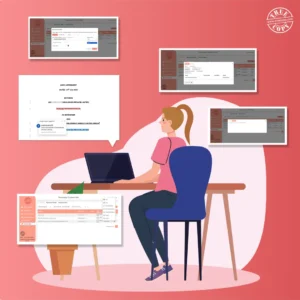Signing contracts is a part of everyday business, but many people still find the process confusing. Whether you’re signing a job agreement, a rental lease, or a business deal, knowing how contracts work can save you from legal trouble.
In this guide, we’ll break down everything about contract signing—what it means, when a contract becomes enforceable, and why businesses rely on tools like TRUESigner ONE for secure and efficient document signing.
What is Contract Signing?
Let’s start with the basics—what exactly is contract signing?
At its core, contract signing is the final step where two or more parties (or companies) agree to the terms of a deal by affixing their signatures to a document. This can be done the old-fashioned way—printing, signing by hand, and scanning—or digitally using modern tools like TRUESigner ONE, which allows you to e-sign documents online in seconds.
Your signature is more than just a scribble—it’s proof that you’ve read, understood, and agreed to the terms. Without it, a contract may not hold by law. That’s why signing contracts properly is so important.
These days, online contract signing has become the go-to method because it’s fast, convenient, and legally binding. No more printing, scanning, or mailing—just a few clicks, and you’re done.
What Does It Mean to Sign a Binding Contract?
When you sign a contract, you’re not just saying, “Okay, I agree.” You’re entering a legally binding agreement. That means if you break the terms, you could face penalties, lawsuits, or other legal consequences.
For a contract to be legally binding, it must meet a few key requirements:
- Offer & Acceptance – One party makes an offer (like a job or a sale), and the other accepts it.
- Consideration – Something of value must be exchanged (money, services, goods, etc.).
- Legal Capacity – Both parties must be of sound mind and legal age (no signing contracts while under pressure or if you don’t understand them).
- Legal Purpose – The agreement must be for something lawful (you can’t enforce a contract for illegal activities).
Tools like TRUESigner ONE make signing contracts easier while maintaining security, even when you need to sign contracts remotely.
When Is a Contract Enforceable?
Just because a contract is signed doesn’t always mean it’s enforceable. A contract only becomes legally binding when:
- All parties have signed – Whether on paper or through online agreement signing, everyone involved must agree.
- There’s mutual agreement – No one should be forced, tricked, or pressured into signing.
- The terms are clear – No vague or confusing language that could lead to disputes later.
If any of these are missing, a court might throw out the contract. That’s why businesses prefer using trusted platforms like TRUESigner ONE—it ensures contracts are signed correctly and securely.
When Should You Sign a Contract?
Never rush into signing contracts—take your time! Here’s when you should put your signature down:
- After reading every single clause – Don’t skip the fine print! Surprise terms can come back to bite you.
- When all terms are fully negotiated, Make sure both sides are happy before signing.
- Using a secure method – If you’re signing contracts online, use a trusted platform like TRUESigner ONE to avoid fraud.
Never sign under pressure, and if something feels off, consult a lawyer first. A few minutes of caution can save you from big legal headaches later.
Why Signing Contracts Matters in Business
Contracts aren’t just paperwork—they’re the backbone of business. Here’s why they’re so important:
- Prevents misunderstandings – Clear terms = fewer arguments later.
- Provides legal protection – If things go wrong, a signed contract is your best defense.
- Saves time & money – Digital tools like TRUESigner ONE allow bulk signing and instant approvals, cutting out delays.
Whether you sign contracts online or in person, having a solid agreement keeps your business running smoothly.
Frequently Asked Questions (FAQ)
While pen-and-paper signatures were once the norm, online contract signing is now the fastest and easiest method.
Absolutely! With e-signature tools like TRUESigner ONE, you can sign contracts remotely from anywhere in the world.
Yes! E-signature platforms use encryption and identity checks to keep the signing of documents secure.
Very safe. Reputable platforms like TRUESigner ONE protect your contract for signing with bank-level security.
Summing up
Signing contracts is a crucial step in any agreement, whether personal or business-related. With digital solutions like TRUESigner ONE, you can e-sign documents online safely and efficiently. Always read contracts carefully before signing, and use trusted platforms to minimize legal issues.
By understanding how contracts work, you’ll make better decisions and protect yourself in any deal. Ready to simplify your signing of documents? Try a secure e-signature tool today!



